When it comes to ensuring that your business thrives, partnering with reliable vendors is essential. A well-crafted letter requesting a reliability assessment can pave the way for a more informed and trustworthy relationship. This letter not only sets the tone for your expectations but also demonstrates your commitment to quality and transparency. Ready to learn how to write an effective vendor reliability assessment request? Let's dive into the details and explore helpful tips!
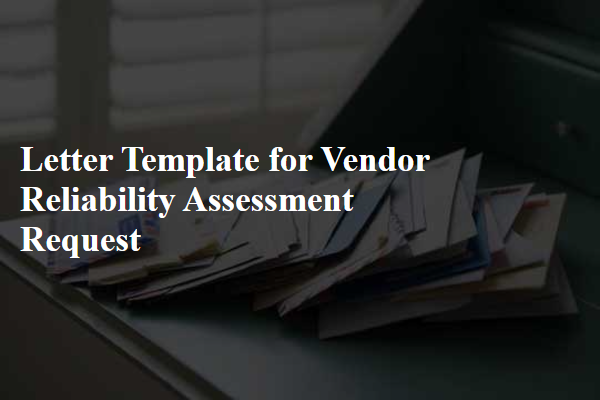
Vendor Contact Information
A vendor reliability assessment examines a supplier's ability to deliver high-quality products or services consistently. The evaluation process typically includes the vendor's contact information, which encompasses details such as the company name, physical address, telephone number, email, and key contact person's name. Providing accurate and complete contact information ensures effective communication during the assessment. Reliable vendors often demonstrate a history of prompt responses and proper documentation, contributing to a strong partnership. Additionally, including this crucial contact information facilitates quick queries or clarifications that may arise throughout the assessment process, enhancing overall efficiency and reliability of the vendor evaluation.
Assessment Criteria and Metrics
Vendor reliability assessment involves evaluating numerous factors critical for successful partnerships. Key metrics include delivery performance, defined as on-time percentage (minimum threshold of 95%), product quality measured by defect rates (ideally below 2%), and customer service response times (target response within 24 hours). Financial stability, gauged through credit ratings and financial ratios (e.g., current ratio of at least 1.5), also demonstrates a vendor's ability to sustain operations. Additionally, compliance with industry standards, such as ISO 9001 or relevant regulations, reinforces a vendor's commitment to quality. Analyzing historical data on claim resolution rates and overall customer satisfaction scores, preferably above 85%, provides insight into the vendor's reliability. Conducting site visits or audits could further quantify operational capabilities.
Timeline for Response
A vendor reliability assessment request establishes a framework for evaluating potential suppliers. The timeline for response should stipulate critical dates, ensuring effective communication and decision-making throughout the procurement process. Vendors will receive the assessment request by email on October 1, 2023, providing a clear deadline of October 15, 2023, for submitting their completed evaluations. This two-week period allows vendors to gather necessary documentation, such as financial records and quality certifications. Follow-up reminders will be sent on October 8, 2023, ensuring vendors remain aware of the upcoming deadline. A final evaluation meeting will occur on October 20, 2023, enabling stakeholders to discuss findings, compare vendors, and make informed decisions efficiently. Timely submissions are crucial for maintaining the project schedule.
Confidentiality Assurance
The vendor reliability assessment process requires comprehensive evaluation of various aspects, including financial stability, operational efficiency, and compliance with industry standards. A key component involves assessing the confidentiality assurance protocols implemented by the vendor to protect sensitive information. Significant standards include adherence to the General Data Protection Regulation (GDPR) for EU-based companies, or the Health Insurance Portability and Accountability Act (HIPAA) for healthcare-related vendors in the United States. This assessment will help ascertain the vendor's commitment to secure data management practices, including encryption techniques and access controls, which are paramount for maintaining client trust and safeguarding proprietary information across sectors. Evaluation criteria should also encompass incident response plans to address potential data breaches, ensuring transparency and accountability.
Contact for Questions or Clarifications
Vendor reliability assessments are crucial in maintaining supply chain integrity. Organizations often reach out to suppliers for detailed evaluations regarding their performance history, financial stability, and compliance with industry standards. A well-crafted request includes specific areas for vendors to clarify, such as delivery timelines, quality control measures, and previous customer testimonials. Data on past contract fulfillment rates (ideally above 95% for established vendors), certifications (like ISO 9001 for quality management), and any relevant audit results should be prominently requested. Immediate communication channels, including email and phone contact, must be established to ensure prompt responses to inquiries. This process enhances decision-making for potential partnerships in high-stakes industries.
Letter Template For Vendor Reliability Assessment Request Samples
Letter template of vendor reliability assessment inquiry for potential partnerships.
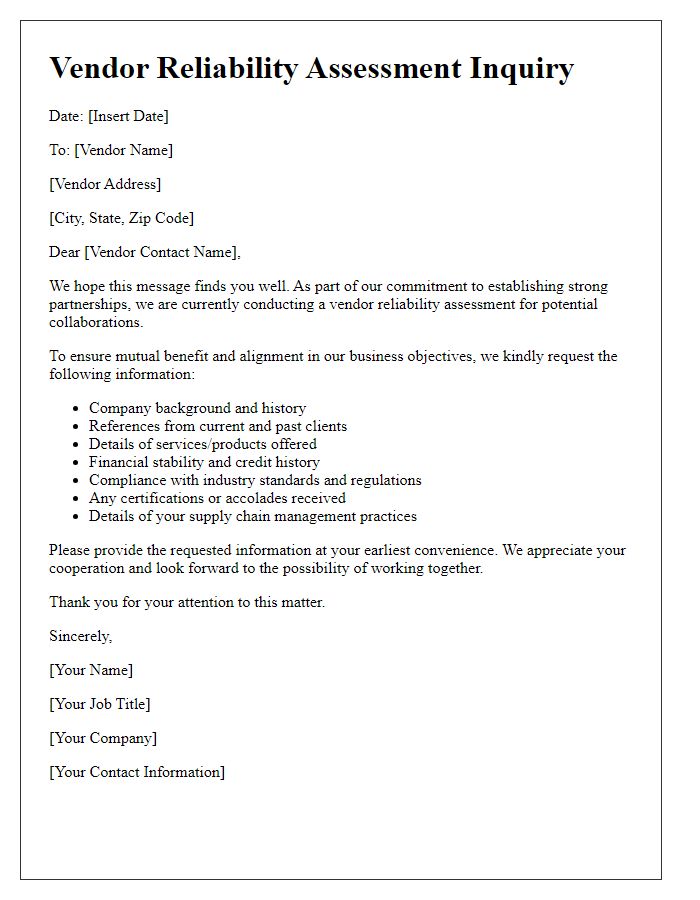
Letter template of vendor reliability evaluation request for contract renewal.
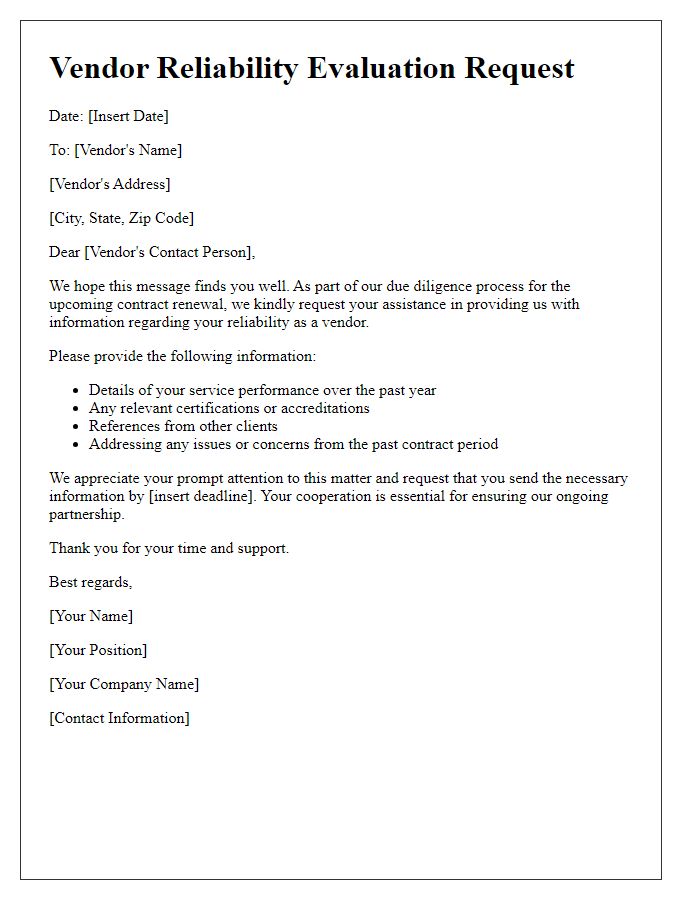
Letter template of vendor reliability assessment survey for performance review.

Letter template of vendor reliability verification request for compliance purposes.
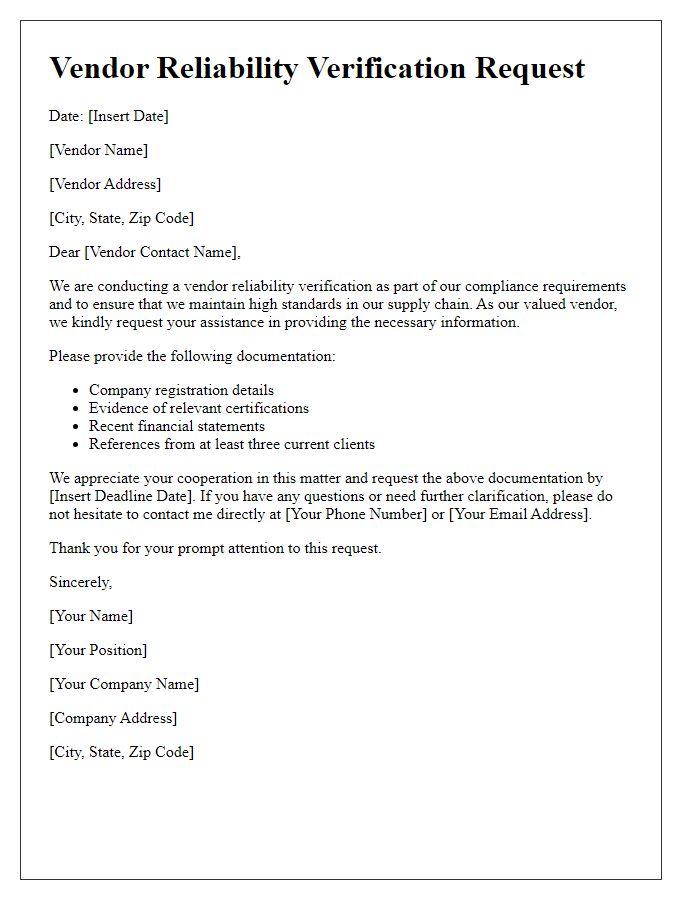
Letter template of vendor reliability assessment documentation request for audit.
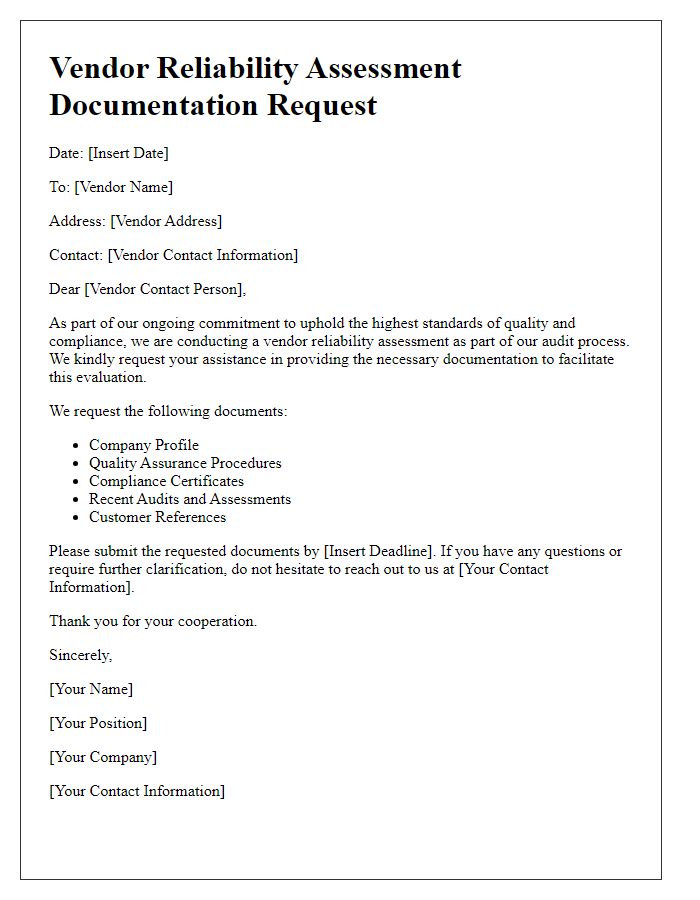
Letter template of vendor reliability analysis inquiry for project collaboration.
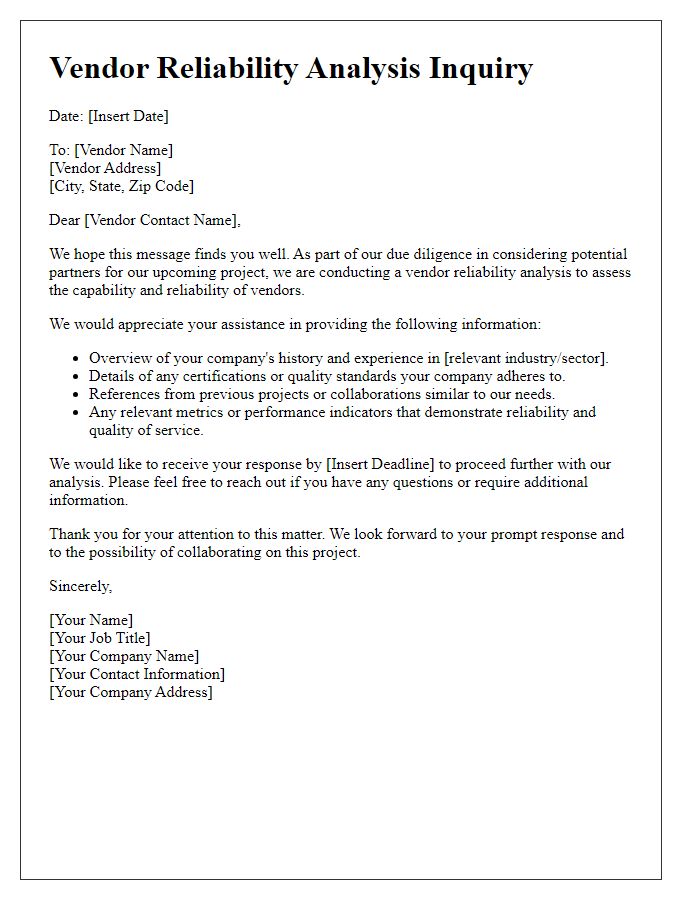
Letter template of vendor reliability assessment notice for quality assurance.
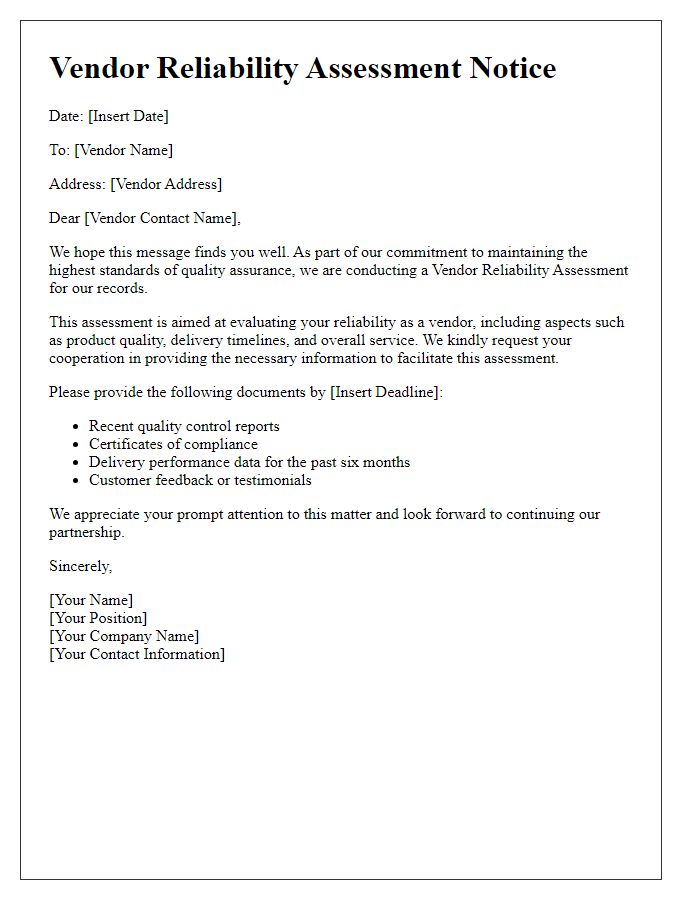
Letter template of vendor reliability review request for strategic sourcing.
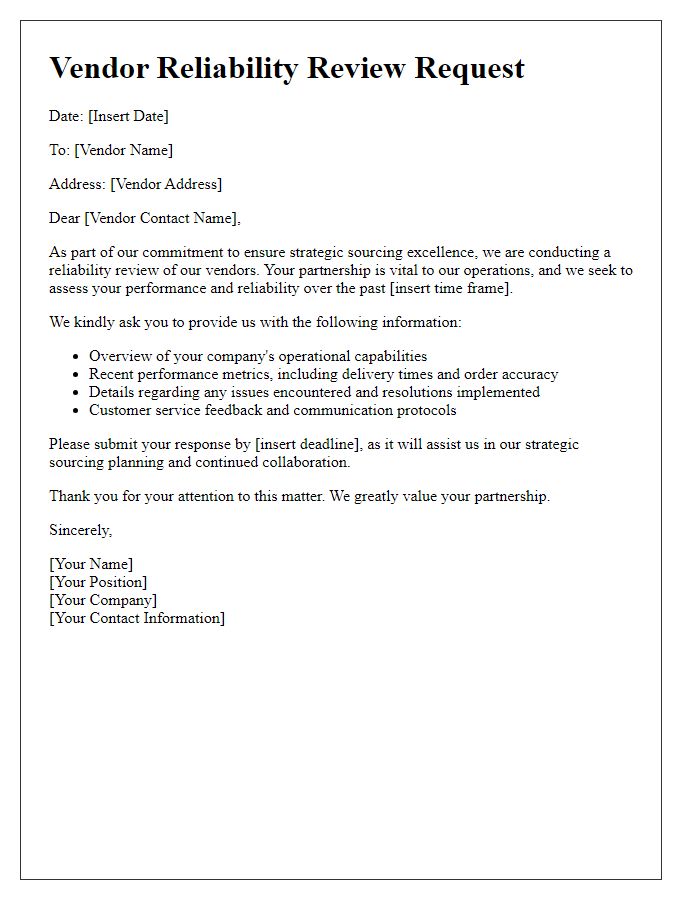
Letter template of vendor reliability assessment feedback inquiry for improvement.
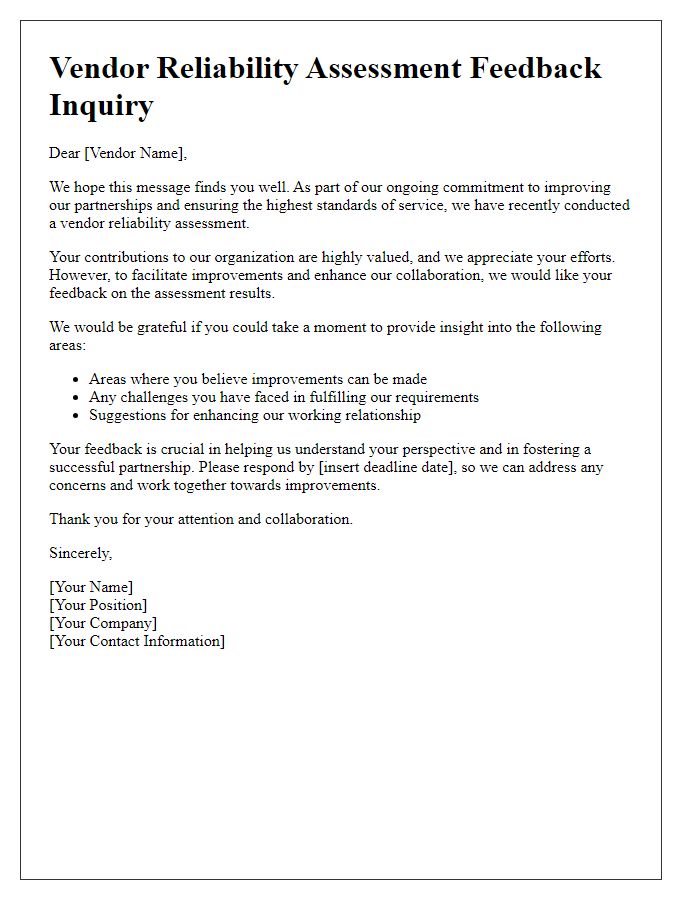

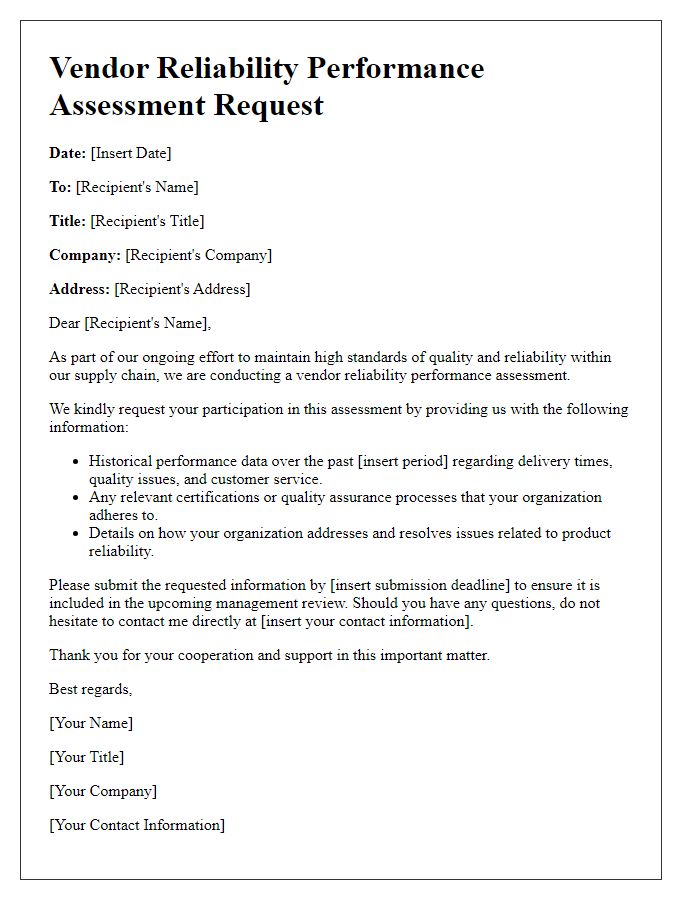

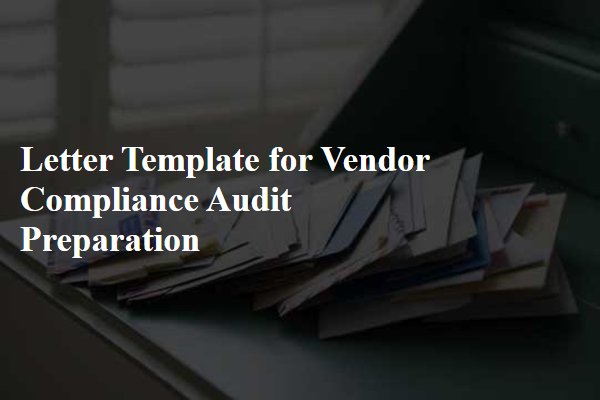
Comments